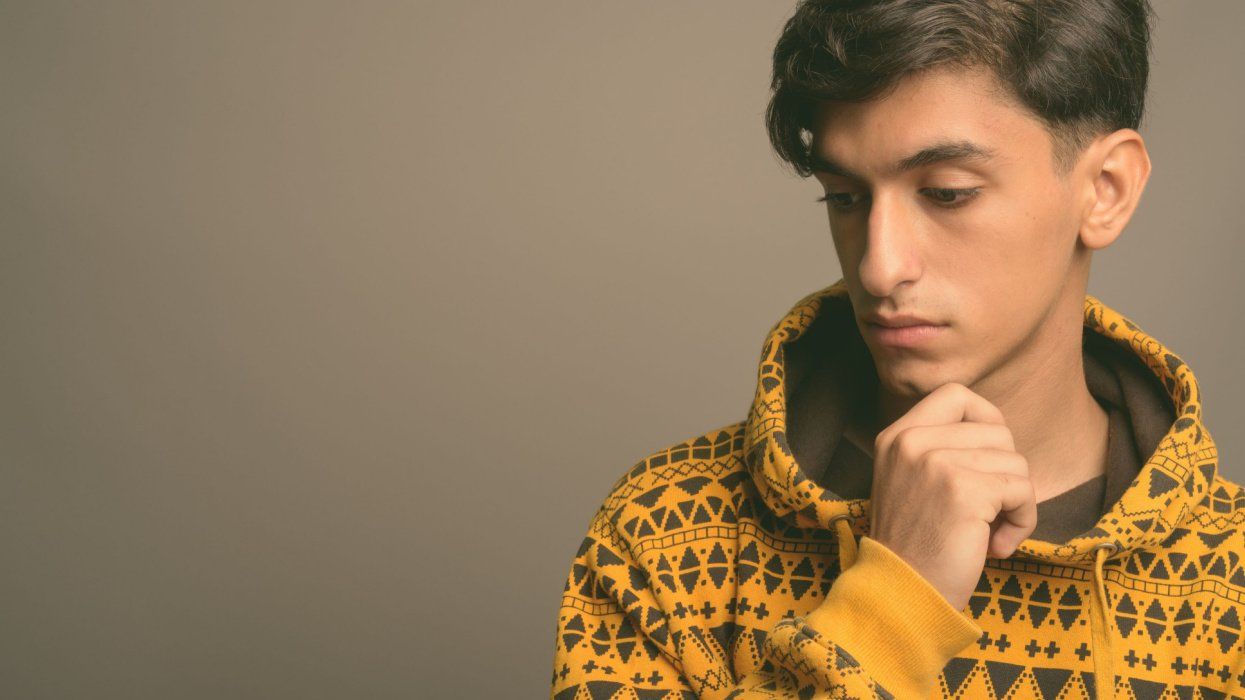Middle Eastern and North African (MENA) youth in the U.S. are reporting high rates of recent anxiety and depression, self-harm, suicide consideration, and suicide attempts, according to the LGBTQ+ youth crisis organization the Trevor Project.
In a research brief published on Thursday, the organization found that 21 percent of MENA LGBTQ+ young people had reported a suicide attempt within the last year. Additionally, almost half said they had seriously considered suicide. About two-thirds (64 percent) said they had self-harmed in the last year.
These rates are higher than non-MENA youth.
The Trevor Project notes that MENA LGBTQ+ people report depression, suicidal ideation, and substance misuse that is often connected to specific societal and cultural stressors that “are unique to MENA people.” That includes, the group notes, anti-LGBTQ+ stigma and persecution.
It's one of the first reports to exclusively examine the mental health of queer MENA youth, as MENA people are often combined with White people in research studies.
"These critical findings underscore the importance of approaching data collection and analysis through an intersectional lens, especially when working with MENA LGBTQ young people, a historically under-researched community," Steven Hobaica, a research scientist at the Trevor Project who holds a doctorate in clinical psychology, said in a statement.
In fact, the organization states in the brief that one in three MENA young people said their therapist did not understand their ethnic background. When that happened, 18 percent of MENA youth said therapy was helpful.
“Untimately, MENA LGBTQ young people who felt that their therapist understood their racial/ethnic background had more than five times greater odds of finding therapy helpful,” the report states.
The group said in the report that more research needs to be done to understand the health outcome of MENA queer youth from specific areas in the region.
The Trevor Project also urges more MENA representation in the mental health care field. The organization recommended in the brief that mental health care providers be provided culturally-informed training that addresses the specific needs of youth that are MENA and LGBTQ+ and the intersections between those identities. The Trevor Project lists creating MENA-inclusive spaces such as a MENA club at schools as a way to create resources for these young people.
"In order to better address the specific needs of MENA LGBTQ young people, we must develop a clearer understanding of the unique cultural stressors that place this group at a higher risk for suicide attempts than their non-MENA and White peers,” Hobaica said. “Mental health care providers, educators, and other youth-serving adults have a responsibility to engage in culturally-informed practices and create safe spaces that affirm the intersecting identities of MENA LGBTQ young people."
If you are having thoughts of suicide or are concerned that someone you know may be, resources are available to help. The 988 Suicide & Crisis Lifeline at 988 is for people of all ages and identities. Trans Lifeline, designed for transgender or gender-nonconforming people, can be reached at (877) 565-8860. The lifeline also provides resources to help with other crises, such as domestic violence situations. The Trevor Project Lifeline, for LGBTQ+ youth (ages 24 and younger), can be reached at (866) 488-7386. Users can also access chat services at TheTrevorProject.org/Help or text START to 678678.
















